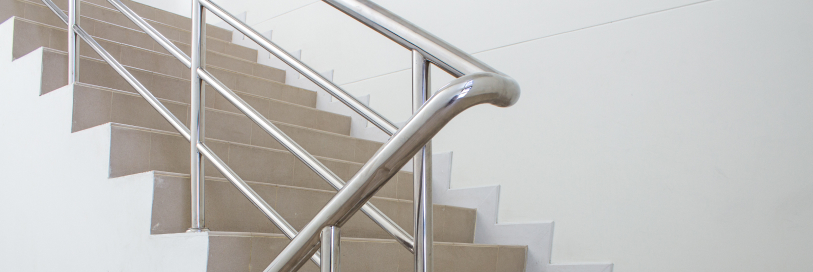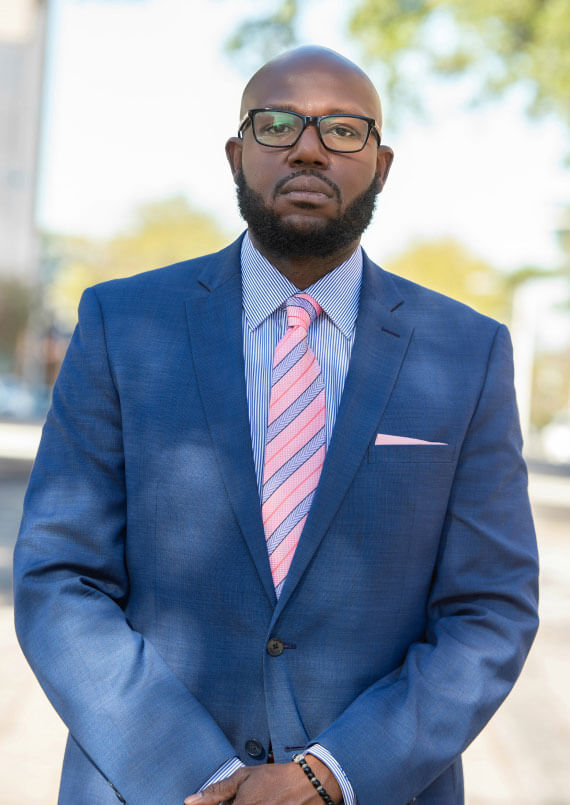Premises Liability Lawyer in Columbia, SC

The Columbia premises liability attorney at the Law Offices of S. Chris Davis provides qualified and compassionate representation to those who’ve been injured in accidents on other people’s property. Whether you were injured due to a wet floor, falling object, defective staircase or railing, or another hazard, our firm is ready to help you seek fair compensation for the harm you’ve suffered.
Owners and managers have a responsibility to keep their property safe for visitors, patrons, and even many trespassers. If you’ve been hurt due to a property owner’s inattention to hazardous conditions, you have the right to seek justice, and we can help you demand it. Contact the Law Offices of S. Chris Davis for a free consultation to discuss your accident and injuries with Chris Davis today.
Do I Have Grounds to File a Premises Liability Lawsuit?
If you were injured in an accident caused by a hazardous condition on someone else’s property and the owner or occupier of the property had a legal duty to fix or clean up the hazard or warn you about it, you may have cause to file a premises liability lawsuit. Whether a property owner owes a legal duty to a visitor depends on the circumstances of any given situation. Under South Carolina premises liability law, there are three categories of visitors:
- Invitees – An invitee is a visitor who comes onto the property at the invitation of and for the benefit of the property owner or occupier. An example of an invitee is a customer of a business. Invitees are owed the highest legal duty under South Carolina premises liability law, which means that a property owner is obligated to inspect their property for hazards and either fix or clean up the hazards or warn invitees of their presence. For example, a business owner is obligated to fix a faulty stair or warn customers that it is faulty.
- Licensees – A licensee is a visitor who enters a property with the owner’s permission or in some other lawful way. Examples of licensees are salespeople, U.S. Postal Service letter carriers, and utility workers. Licensees are owed a lesser duty of care than invitees. Although a property owner must warn licensees of hazards they know about, they do not owe licensees a legal duty to regularly inspect the property or remove hazardous conditions for their benefit.
- Trespassers – A trespasser is someone who unlawfully enters a property. Under premises liability law, trespassers are not generally owed a duty of care, although there are some exceptions to this rule. Property owners must refrain from willfully injuring trespassers.
- Children – Because children might be too young or inexperienced to be aware of hazards they might face, property owners usually owe them a duty of care that extends beyond other classifications of visitors. This is particularly true when it comes to “attractive nuisances,” or features on the property like swimming pools or playgrounds that might entice a child to trespass without being aware of the danger they face. If a child is injured due to an attractive nuisance, a property owner might still be liable for the harm that the child suffers, even if the child could be considered a trespasser.
Finally, under SC Code § 27-3-40 and §27-3-50, premises liability may be limited in cases where a visitor is injured on property that is open without charge by the property owner for recreational purposes. For example, a property owner might make their land available to the public for hunting or fishing. In that case, someone visiting the property is expected to be careful while they are there. However, a property owner may be liable in a case where their failure to protect visitors from a dangerous condition is deemed “grossly negligent, willful, or malicious.”
Types of Premises Liability Cases We Handle
At the Law Offices of S. Chris Davis, Columbia premises liability attorney Chris Davis can help you pursue compensation for injuries you’ve suffered due to virtually any kind of premises liability injury. Some of the most common premises liability case types that our firm handles include:
- Slip-and-fall accidents where you lose your footing due to a slippery floor caused by a substance on the floor, such as water, or the floor being made of a slippery material
- Trip-and-fall accidents where you stumble over an obstacle or because of a hazard, such as uneven flooring, broken pavement, or wires/cords or debris on the floor
- Inadequate security that fails to protect you from violence or another criminal activity that causes your injuries
- Swimming pool accidents, including slip-and-fall accidents, diving accidents, or drownings
- Dog bites, for which dog owners can be liable for a bite victim’s injuries
- Dangerous stairs, including broken or missing stairs, missing handrails, or lack of anti-slip mats
- Elevator and escalator accidents, including accidents caused by defective parts or inadequate maintenance
- Fires and explosions, including accidents caused by improper storage of flammable materials or a failure to monitor open flames or other heat sources
- Trampoline park accidents, including accidents caused by lack of maintenance, lack of instruction, or lack of supervision
- Golf course accidents, such as slips, trips, or golf cart accidents
- Construction site accidents, including building collapses
- Workplace accidents, whether they occur at a traditional jobsite or off-site
What Compensation Could be Recovered in a Premises Liability Lawsuit?
A premises liability lawsuit may compensate you for monetary losses, such as bills, and personal losses, such as emotional distress you suffered because of your injuries. Compensation in your premises liability lawsuit may cover:
- Costs of medical treatment and rehabilitation for injuries you suffered in the accident or incident
- Expenses for long-term care of permanent disabilities
- Lost income/wages due to missing time from work while recovering from your injuries
- Loss of future earning capacity if you suffer permanent disabilities that impact your ability to return to your job
- Pain and suffering
- Emotional distress
- Reduced quality of life from disfigurement/scarring or disabilities
